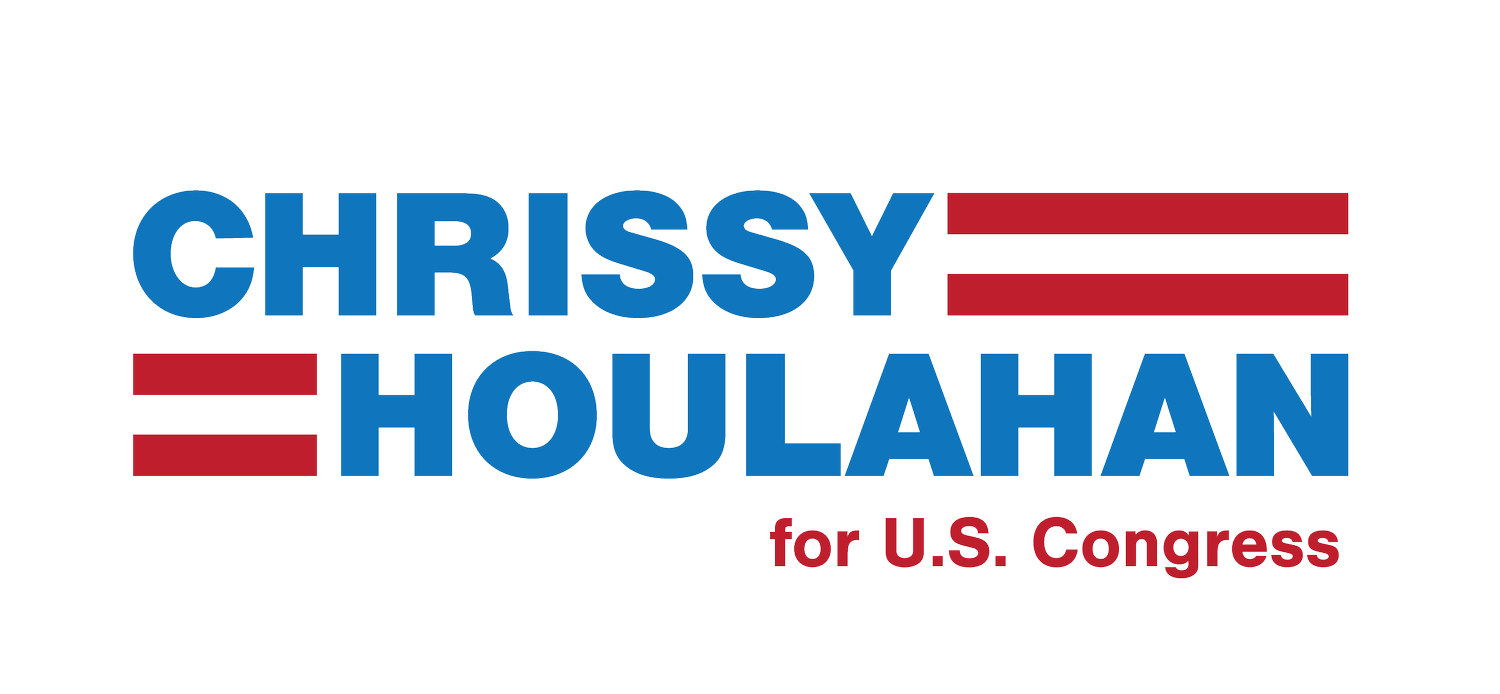Daily Local News, 06/26/2020 - Democratic US Rep. Houlahan votes on police policy overhaul
By Michael P. Rellahan
Chester County’s sole representative in Congress joined with other members in voting to pass a far-reaching piece of legislation that would overhaul police policies and practices across the country, but expressed frustration afterwards that partisan politics might sink those efforts.
The George Floyd Justice in Policing Act, approved by a bipartisan, 236-181 vote Thursday, would ban chokeholds; stop no-knock warrants in drug cases; end qualified immunity for police officers in wrongful conduct cases; combat racial profiling; mandate data collection, including recordings from body cameras and dashboard cameras; and establish new standards for policing.
“The legislation is a culmination of decades-long activism by Black leaders, activists, and elected representatives,” said U.S. Rep. Chrissy Houlahan, D-6th, of Easttown in a statement issued after the vote, in which she was joined by her fellow suburban Philadelphia Democrats, U.S. Reps. Madeleine Dean, D-4th, of Glenside, Montgomery County, and Mary Gay Scanlon, D-5th, of Swarthmore, Delaware County.
Although claiming support by members of both political parties, the vote was largely one versus the other. Three Republicans joined Democrats in favor of passage and no Democrats were opposed.
“For too long, Black lives have been lost to police brutality,” Houlahan said. “Today, we take an important step towards combating the systemic racism in our criminal justice system. The road to full equality is still long, and we must continue the hard but necessary work of dismantling systemic racism in our country.”
Congress is now at a familiar impasse despite protests outside their door and polling that shows Americans overwhelmingly want changes after the deaths of Floyd, Breonna Taylor and others in interactions with law enforcement.
While the George Floyd Justice in Policing Act is perhaps the most ambitious set of proposed changes to police procedures and accountability in decades, and is backed by the nation's leading Civil Rights groups, aiming to match the moment of demonstrations that filled streets across the nation, many observers said it has almost zero chance of becoming law.
On the eve of the vote, President Donald Trump's administration said he would veto the bill. And Senate Majority Leader Mitch McConnell has also said it would not pass the Republican-held chamber.
After a GOP policing bill stalled this week, blocked by Democrats, Trump shrugged. “If nothing happens with it, it’s one of those things," Trump said. "We have different philosophies.”
In her reaction, Houlahan urged Republicans to join the movement, however.
“I am disappointed by the White House’s unwillingness to meet this moment,” she said. “I encourage my colleagues in the Senate and the Administration to listen to the American people and engage with us on a path forward. Equality cannot nor should not wait any longer.
“Of course I would like to see the House and the Senate work better together on this issue, and on so much more,” Houlahan added. “That said, yesterday, we saw Republicans step forward and vote for this necessary and crucial bill. The legislative process is a messy one even in the best of times, and now it is in the hands of the Senate to propose an alternative or to act in good faith on the House package.
“It is also with the president to lead on this issue. Combating systemic racism should not be a partisan issue,” she said.
It has been a month since Floyd’s May 25 death sparked a global reckoning over police tactics and racial injustice. Since then, funeral services were held for Rayshard Brooks, a Black man shot and killed by police in Atlanta. Thursday is also what would have been the 18th birthday of Tamir Rice, a Black boy killed in Ohio in 2014.
Lawmakers who have been working from home during the COVID-19 crisis were summoned to the Capitol for an emotional, hours-long debate. Dozens voted by proxy under new pandemic rules.
During the day, several Democratic lawmakers read the names of those killed, shared experiences of racial bias and echoed support of Black Lives Matter activists.
Rep. Karen Bass, D-Calif., the chairwoman of the Congressional Black Caucus, said hundreds of thousands of people “in every state in the Union” are marching in the streets to make sure Floyd “will not be just another Black man dead at the hands of the police.”
Republican lawmakers countered the bill goes too far and failed to include GOP input. “All lives matter,” said Rep. Debbie Lesko, R-Ariz. New York Rep. Pete King said it’s time to stand with law enforcement, the “men and women in blue.” House GOP leader Kevin McCarthy decried the “mob” of demonstrators.
At one point Rep. Barry Loudermilk, R-Ga., stood up to say he just didn't understand what was happening in the country — from Floyd's death to the protests that followed. Several Black Democratic lawmakers rose to encourage him to pick up a U.S. history book or watch some of the many films now streaming about the Black experience in America.
Both bills share common elements that could be grounds for a compromise. Central to both would be the creation of a national database of use-of-force incidents, which is viewed as a way to provide transparency on officers' records if they transfer from one agency to another. The bills would restrict police chokeholds and set up new training procedures, including beefing up the use of body cameras.
The Democratic bill goes much further, mandating many of those changes, while also revising the federal statute for police misconduct and holding officers personally liable for damages in lawsuits. It also would halt the practice of sending military equipment to local law enforcement agencies.
Neither bill goes as far as some activists want with calls to defund the police and shift resources to other community services.
The Associated Press contributed to this story.
